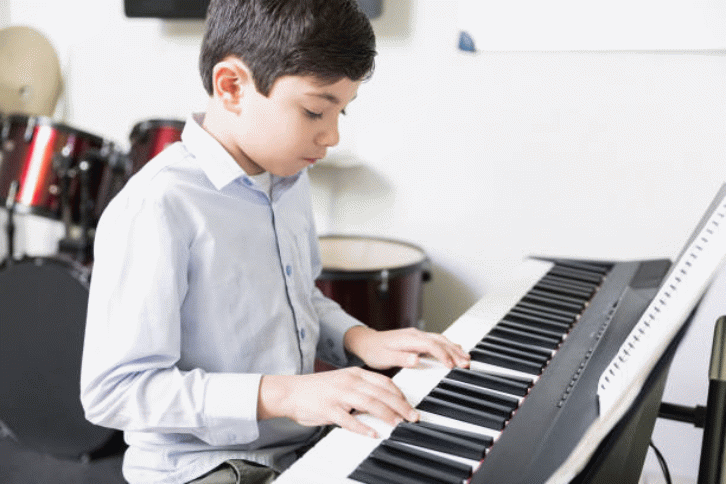MUSICAL INSTRUMENTS
Let's bring music back to the classroom
For generations, music has been an important part of the school day for students in America. Nearly every classroom in the nation’s elementary schools at one time had a piano, and most teachers were able to play simple songs so that students could sing along to their favorites.
Today, the trend toward cutting funds for music programs is an alarming one. In tough economic times, music is often the first to go. Yet the research about music— having an instrument, taking lessons—provides incredible learning advantages.
According to studies, students who are exposed to lessons on a musical instrument score a full 100% higher on fractions tests than those who learn fractions in the conventional manner—music is mathematics. High school music students have been shown to hold higher grade point averages (GPA) than non-musicians in the same school. And middle and high school students who participate in instrumental music performances score significantly higher than their non-musical peers in standardized tests.

Musical-instrument lessons help develop organizational and self-discipline skills. Members of bands, ensembles, and orchestras learn about teamwork and collaboration. And the child who is skilled at a musical instrument tends to excel at problem-solving, pattern-recognition, fine- tuned auditory skills, and memorization—not to mention the self-confidence and self-esteem that comes with musical performance.
2022-2023 Goal
Keyboards for all Fifth Graders - Help us reach our goal!
